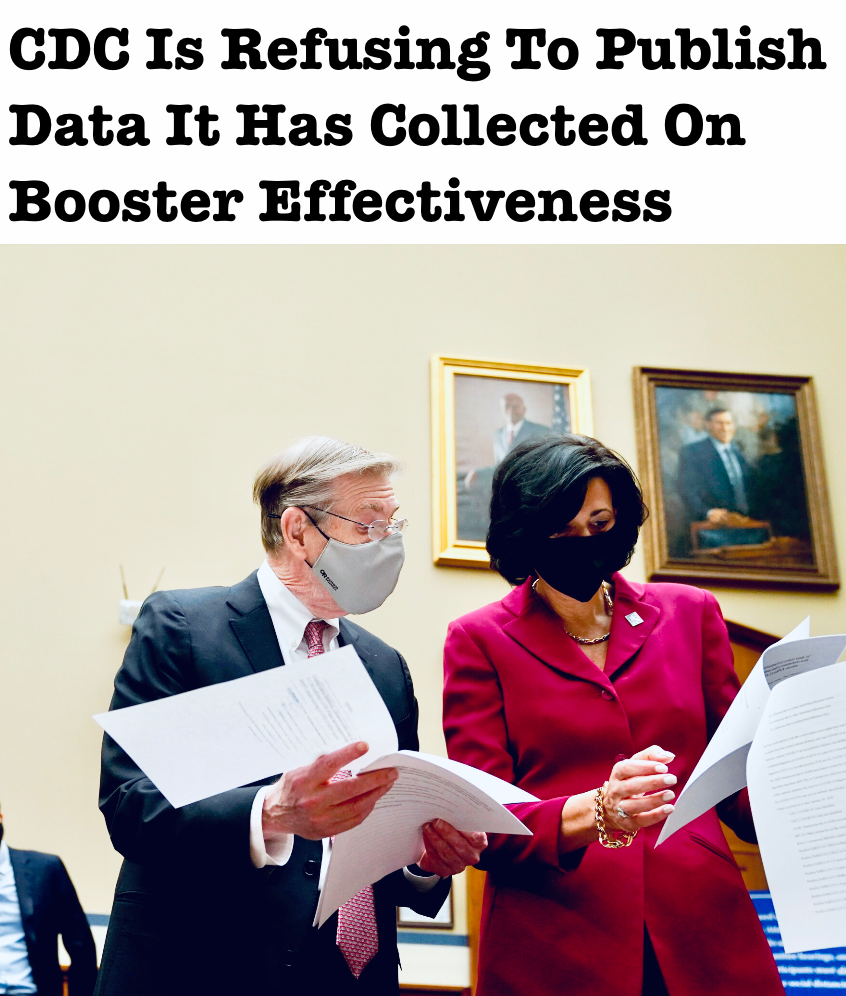
Two weeks ago, the CDC published the first significant data on the effectiveness of boosters in adults younger than 65. The agency failed to share the information on those aged 18-49, who are considered to be the least likely to benefit from a booster. It has also failed to provide information they collected on child hospitalizations. Spokeswoman for the CDC, Kristen Nordlund, said the reason for withholding the data is 'because basically, at the end of the day, it's not yet ready for prime time.' This decision has caused frustration in medical and scientific communities. Dr. Paul Offit, a vaccine expert and adviser to the Food and Drug Administration has demanded the release of the data saying, "Tell the truth, present the data." Offer says due to the CDC's refusal to release vital information, scientists have be forced to rely on Israeli data. Dr. Yvonne Maldonado, chair of the American Academy of Pediatrics's Committee on Infectious Diseases, said she data from the CDC on the proportion of children hospitalized for COVID who have other medical conditions. She said eventually found the information she was looking for in a news report. "They've known this for over a year and a half, right, and they haven't told us...I mean, you can't find out anything from them," she said. Despite claims of fears that the data the CDC is holding would be misinterpreted if released, Jessica Malaty Rivera, an epidemiologist and part of the team that ran the Covid Tracking Project, has said this simply isn't true. She said releasing the information in fact, "builds public trust, and it paints a much clearer picture of what's actually going on." She added, "It gets really exhausting when you see the private sector working faster than the premier public health agency of the world."
sovren.media




